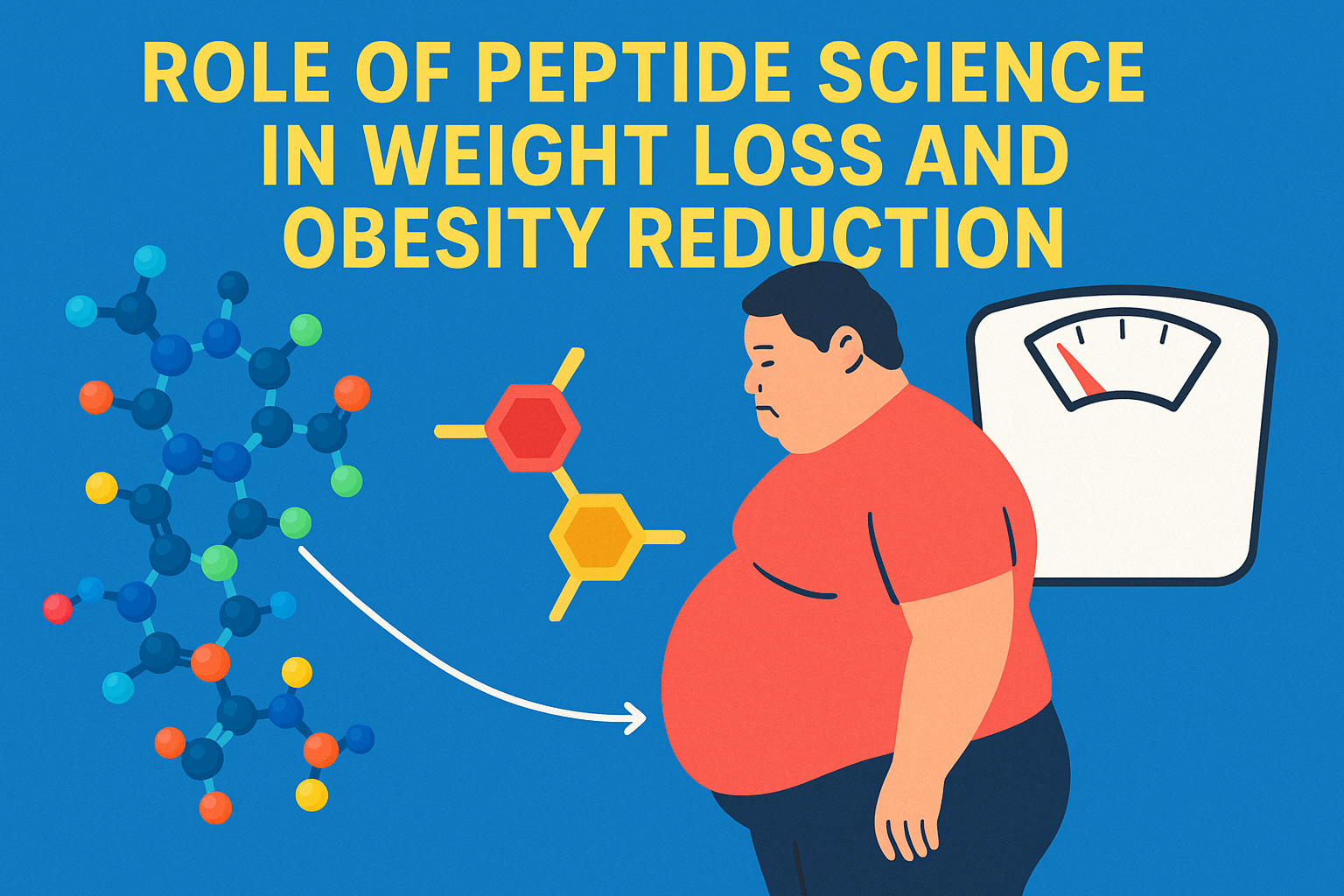In the evolving world of weight loss and health science, peptide-based therapies are rapidly gaining attention. Researchers and clinicians are exploring how specific peptides — small chains of amino acids — can be harnessed to regulate body weight, reduce fat accumulation, and improve metabolic health.
Let’s dive deep into how peptide science is playing a major role in tackling obesity in 2025 and beyond.
What Are Peptides?
Peptides are short strings of amino acids, which are the building blocks of proteins. They naturally occur in the body and are involved in various biological functions — from regulating hormones to improving cell signaling.
In recent years, scientists have been able to synthesize and modify peptides to create targeted therapies for diseases — including obesity.
How Peptides Influence Weight Loss
Here’s how peptides specifically contribute to weight management:
1. Appetite Suppression
Some peptides mimic hormones that signal satiety to the brain. For example:
- GLP-1 (Glucagon-Like Peptide-1) analogs, like semaglutide and tirzepatide, help reduce appetite, slow down gastric emptying, and increase feelings of fullness.
- This means you naturally consume fewer calories without feeling deprived.
2. Enhanced Fat Burning
Certain peptides can boost the body’s ability to burn fat:
- CJC-1295 and Ipamorelin are growth hormone-releasing peptides that can stimulate fat breakdown while preserving lean muscle mass.
3. Improved Insulin Sensitivity
Peptides can improve how the body responds to insulin:
- Better insulin sensitivity means lower blood sugar levels, reduced fat storage, and easier weight control, especially important for people with obesity-linked insulin resistance.
4. Energy and Muscle Preservation
Unlike crash diets that lead to muscle loss, some peptides help preserve or even build muscle while targeting fat stores, aiding sustainable weight loss and preventing metabolic slowdown.
Popular Peptides Being Studied for Weight Loss
Here are some of the most researched and clinically used peptides for obesity treatment today:

🔵 Example:
Tirzepatide, approved by the FDA in 2022 for type 2 diabetes, showed more than 20% body weight loss in obese patients during trials — an effectiveness close to bariatric surgery outcomes without the surgery!
Why Is Peptide Therapy Promising for Obesity?
- Targeted Action: Unlike general diet plans, peptides can target specific biological pathways related to hunger, metabolism, and fat storage.
- Minimal Invasiveness: Most peptides are administered via simple injections or once-weekly doses.
- Customization: Peptide therapies can be customized based on individual metabolic profiles.
- Reduced Need for Surgery: With powerful weight loss effects, peptides offer an alternative to invasive procedures like bariatric surgery.
Challenges and Considerations
While peptide science is promising, it’s important to note:
- Cost: Many peptide therapies are expensive and not widely covered by insurance.
- Long-Term Safety: Some peptides are new, and more long-term studies are needed to fully understand risks.
- Prescription Requirement: Many peptides require a doctor’s prescription and monitoring.
⚠️ Important: Peptide therapy should always be supervised by a qualified healthcare professional to ensure safety and efficacy.
Final Thoughts
The future of obesity treatment is shifting — and peptide science is at the forefront. By understanding and manipulating the body’s natural processes, peptides offer new hope for sustainable, medically managed weight loss.
If you’re struggling with obesity and traditional methods haven’t worked, it might be worth discussing peptide options with your doctor.
Disclaimer:
This article is for informational purposes only and does not constitute medical advice. Always consult a healthcare provider before starting any new treatment. I am not associated with any pharmaceutical company, brand, or medical institution.
References:
- WHO: Global Obesity Trends and Emerging Treatments (2024 Report)
- National Institutes of Health (NIH): Peptide-Based Therapeutics for Obesity (2023)



